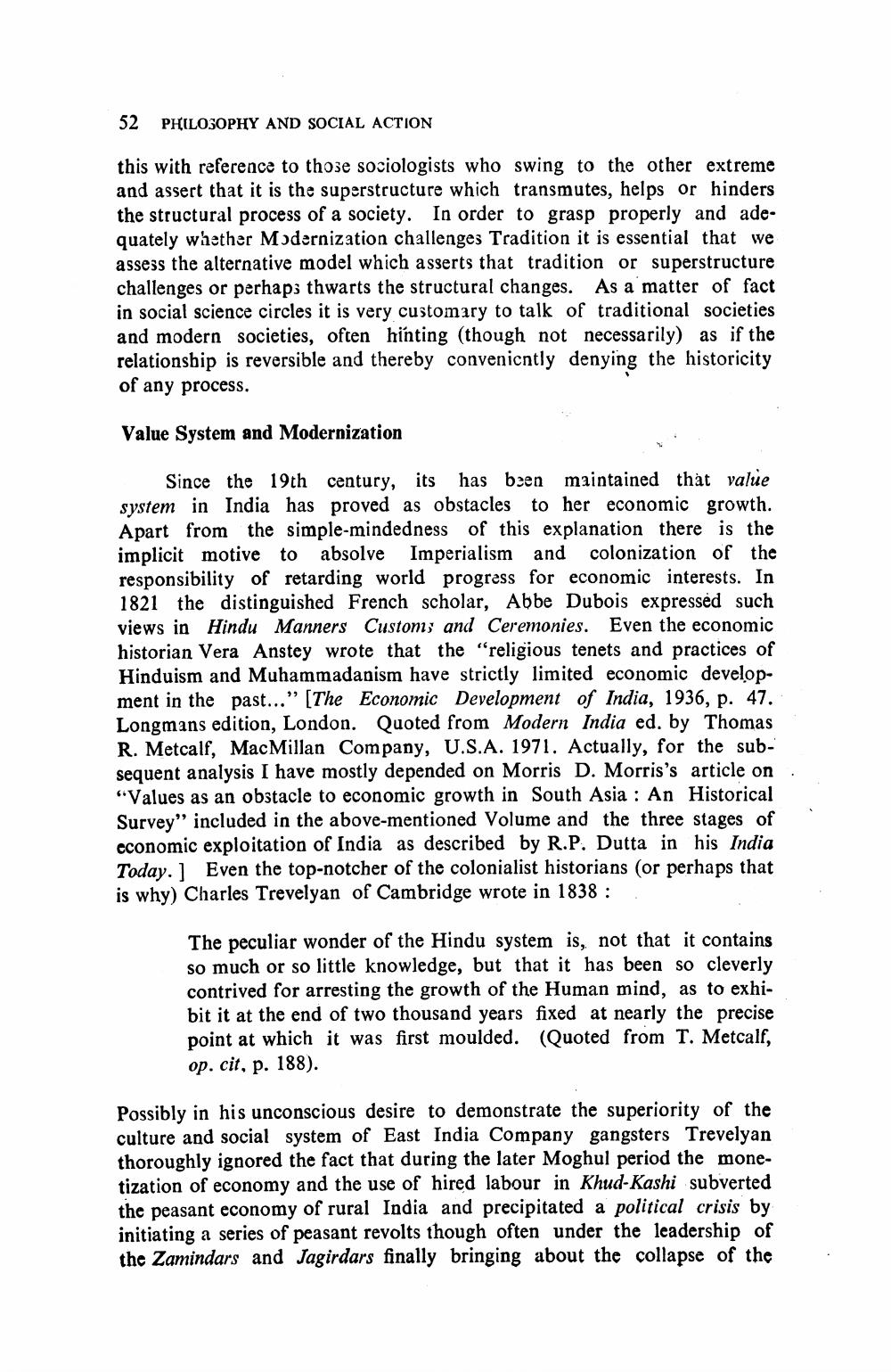Book Title: Modernization And Philosophical Tradition India And Third World Author(s): Sachindranath Ganguly Publisher: Sachindranath Ganguly View full book textPage 6
________________ 52 PHILOSOPHY AND SOCIAL ACTION this with reference to those sociologists who swing to the other extreme and assert that it is the superstructure which transmutes, helps or hinders the structural process of a society. In order to grasp properly and adequately whether Mödernization challenges Tradition it is essential that we assess the alternative model which asserts that tradition or superstructure challenges or perhaps thwarts the structural changes. As a matter of fact in social science circles it is very customary to talk of traditional societies and modern societies, often hinting (though not necessarily) as if the relationship is reversible and thereby conveniently denying the historicity of any process. Value System and Modernization Since the 19th century, its has been maintained that value system in India has proved as obstacles to her economic growth. Apart from the simple-mindedness of this explanation there is the implicit motive to absolve Imperialism and colonization of the responsibility of retarding world progress for economic interests. In 1821 the distinguished French scholar, Abbe Dubois expressed such views in Hindu Manners Customs and Ceremonies. Even the economic historian Vera Anstey wrote that the "religious tenets and practices of Hinduism and Muhammadanism have strictly limited economic development in the past...” (The Economic Development of India, 1936, p. 47. Longmans edition, London. Quoted from Modern India ed. by Thomas R. Metcalf, MacMillan Company, U.S.A. 1971. Actually, for the subsequent analysis I have mostly depended on Morris D. Morris's article on. "Values as an obstacle to economic growth in South Asia : An Historical Survey” included in the above-mentioned Volume and the three stages of economic exploitation of India as described by R.P. Dutta in his India Today. 1 Even the top-notcher of the colonialist historians (or perhaps that is why) Charles Trevelyan of Cambridge wrote in 1838 : The peculiar wonder of the Hindu system is, not that it contains so much or so little knowledge, but that it has been so cleverly contrived for arresting the growth of the Human mind, as to exhibit it at the end of two thousand years fixed at nearly the precise point at which it was first moulded. (Quoted from T. Metcalf, op. cit, p. 188). Possibly in his unconscious desire to demonstrate the superiority of the culture and social system of East India Company gangsters Trevelyan thoroughly ignored the fact that during the later Moghul period the monetization of economy and the use of hired labour in Khud-Kashi subverted the peasant economy of rural India and precipitated a political crisis by initiating a series of peasant revolts though often under the leadership of the Zamindars and Jagirdars finally bringing about the collapse of thePage Navigation
1 ... 4 5 6 7 8 9 10 11 12 13 14
